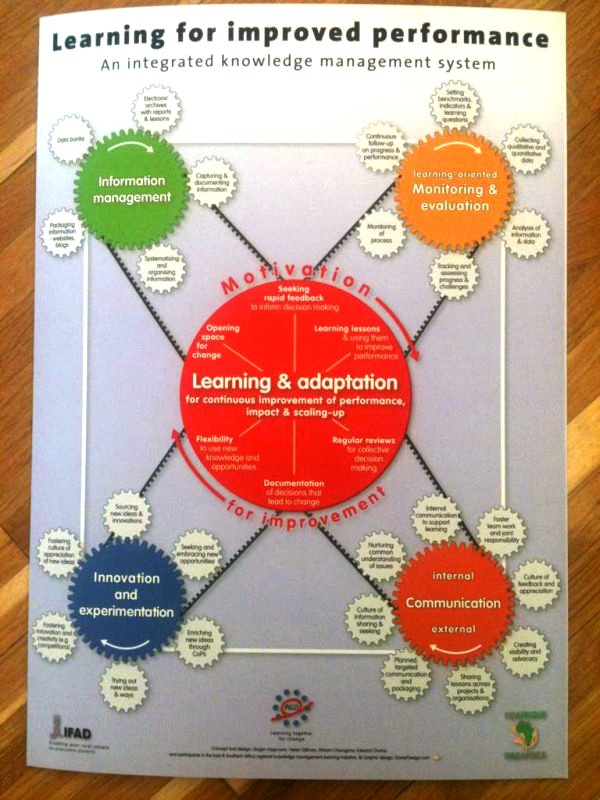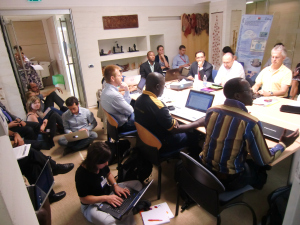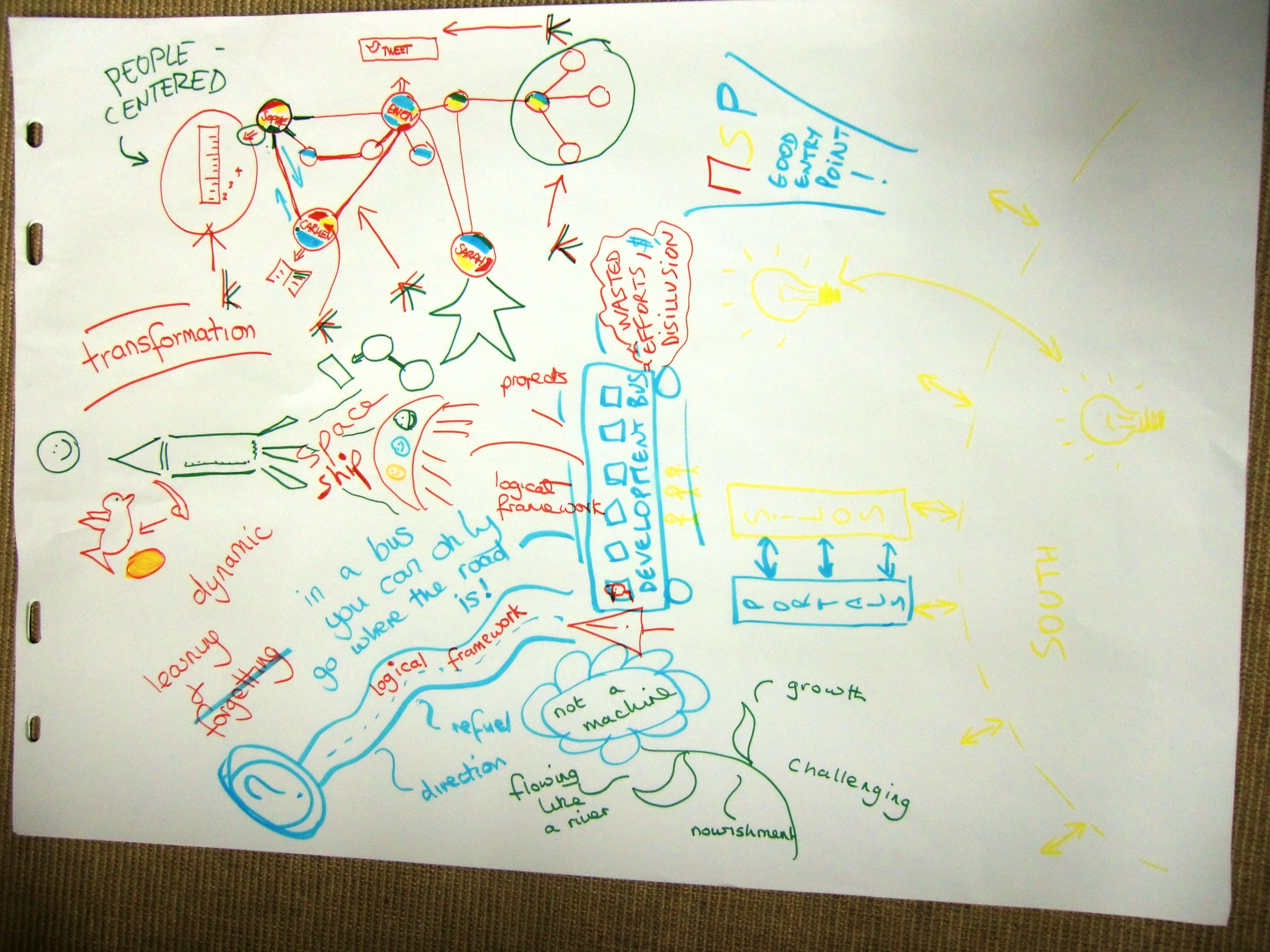Ewen Le Borgne shares his reflections from the 2011 Share Fair, and three very interesting and complementary sessions on a) the IFAD experience of putting KM and learning into practice (#218) b) using social media for development (#206) and c) IKM-Emergent's idea of a knowledge ecology (#173).
Published on: 02/10/2011

The first session explored the experiences of IFAD with knowledge management in their programme. It was a great sharing moment recognising the failures and issues that IFAD (like many other organisations) had/has been facing. What worked in their case: iterative coaching and workshops, development of systemic competences, focusing on improvement rather than on ‘KM’ as such, facilitation of communication processes, focus on various levels (individual, team, organisation), challenging the institutional set up, developing pilots to learn quickly from them, promoting and marketing the value of learning (for self improvement), working on the attitude and willingness to learn and improve, and time is needed for all these ingredients to form a savoury meal. And by the way some cooking instructions help too – so here’s the IFAD learning framework, which proved very helpful to turn concepts into practical activities for those involved in this experience.
Although there is palpable progress already, much remains to be done. Oh yes, and languages are still very much an issue: no translation budget, interpretation problems... We just can’t keep saying this though. It’s time to act on the language divide!
The second session was around using social media for development – a big buzz word at the moment, confirmed by the over-attendance of this session and the social media reporting overkill. After a short presentation by Musa Masilela, the many participants discussed: the rapidity at which social media are evolving and the need to find a balance between exploring and mastering these tools; the difficulty of justifying and using social medias in institutions when so many corporate procedures hamper their quick uptake; yet at the same time a social media policy proves helpful to frame the approach and visualise the value expected from using social media; and no, not only communication people are in charge of social media, it’s everybody’s business! My take home here was that social media are there, used by many at work and outside and that they have the power to expand conversations and to connect individuals, teams and organisations.

The third session was organised by Sarah Cummings from IKM-Emergent around the indeed emergent topic of ‘knowledge ecology’. Sarah blogged about this topic on the Giraffe, the blog of IKM’s working group 3 (which focuses on organisational practices of knowledge management). In brief, the knowledge ecology perspective is about recognising the values and contributions of multiple knowledge cultures in development work and about finding ways to ensure they all connect with one another to embrace a richer (and complexity-friendly) understanding of development processes. At the heart of the idea is also the recognition that local values and expectations should be the starting point, rather than the knowledge industry that is all too often imposed in friendly or non-friendly ways by Northern development actors. In our group work in this session we made a critique of that ‘development bus’ which we are trying to stop so that all inside and outside the bus start discussing their journey and perhaps transform the bus in the magic bean that will bring them to another dimension, or even a space ship that brings us all where we need to be.

The sum of these sessions is the recognition for a number of key aspects:
The ShareFair itself, with its parallel sessions, diversity of participants and outbursts of holistic action was in itself a great demonstration of the importance of multiple knowledge perspectives in the process of designing and implementing development initiatives – whether civic-driven or externally-steered.
At IRC we have strong opinions and we value honest and frank discussion, so you won't be surprised to hear that not all the opinions on this site represent our official policy.